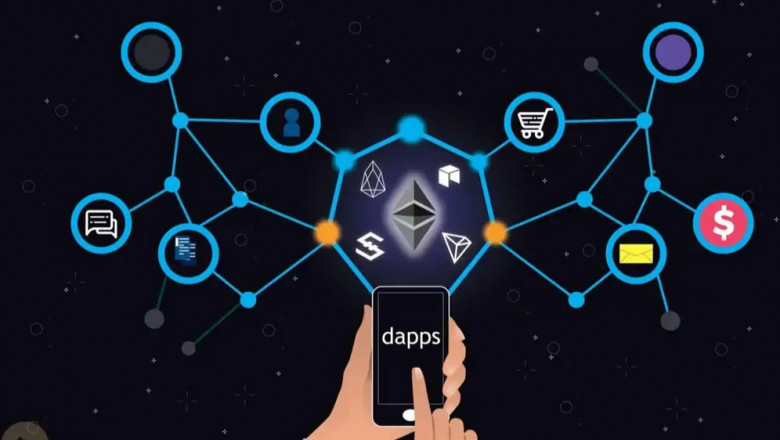views
What Are Smart Contracts?
Smart contracts are self-executing agreements written in code, which run on a blockchain network. Unlike traditional contracts, smart contracts do not require intermediaries such as lawyers or notaries. Once the conditions coded into the contract are met, the contract executes itself automatically.
For example, in a real estate transaction, a smart contract can hold funds in escrow and release them to the seller only once the property ownership is verified and transferred to the buyer. This ensures trust and transparency while eliminating delays and manual oversight.
Key Features of Smart Contracts:
-
Trustless Environment: Parties do not need to trust each other; they trust the code.
-
Immutable: Once deployed, the contract cannot be changed.
-
Autonomous Execution: No need for intermediaries to enforce the terms.
-
Transparent: Transactions are visible on the public blockchain.
What Are Decentralized Applications (dApps)?
Decentralized applications, or dApps, are software applications that run on a blockchain or peer-to-peer network instead of centralized servers. dApps interact with smart contracts on the backend, enabling a range of services from finance to gaming without central control.
Unlike traditional apps, dApps:
-
Operate on decentralized networks like Ethereum, Polygon, or Solana.
-
Are typically open-source.
-
Rely on cryptographic tokens (such as ETH or MATIC) to operate or incentivize users.
Examples of dApps:
-
Finance: Uniswap (decentralized exchange), Aave (lending platform)
-
Gaming: Axie Infinity, Decentraland
-
Social Media: Lens Protocol, Minds
-
Real Estate: dApps offering tokenized property sales and smart rental agreements
How Smart Contracts and dApps Work Together
At the heart of every dApp are smart contracts that define the rules and logic of the application. When users interact with the dApp—whether it’s transferring funds, casting a vote, or initiating a transaction—the smart contract processes these inputs and executes the required outputs autonomously.
For instance, in a decentralized lending platform dApp, smart contracts can automatically assess collateral, determine interest rates, and enforce repayment terms without human intervention.
Benefits for Businesses and Users
-
Cost Reduction: Eliminating intermediaries reduces administrative costs and processing fees.
-
Increased Security: Blockchain’s immutable ledger and cryptographic protocols ensure tamper-proof records.
-
Faster Transactions: No need to wait for manual validation or bank approval.
-
Global Reach: dApps are accessible from anywhere, fostering inclusivity.
-
User Empowerment: Users retain control over their data and assets, eliminating reliance on third parties.
Challenges and Considerations
Despite their potential, smart contracts and dApps come with limitations:
-
Complex Development: Writing secure smart contracts requires specialized skills, and any errors can be irreversible.
-
Scalability Issues: Popular blockchains can become congested, leading to high transaction fees and slower performance.
-
Regulatory Uncertainty: Many countries are still defining how to regulate smart contracts and dApps, especially in sectors like finance and real estate.
-
User Experience: dApps often have a steeper learning curve compared to centralized apps, which can deter mainstream adoption.
Future Outlook
The future of smart contracts and dApps is promising. As blockchain infrastructure evolves with the integration of Layer-2 solutions, cross-chain communication, and better developer tools, we can expect:
-
Wider enterprise adoption, particularly in real estate, healthcare, and logistics.
-
Integration with traditional IT systems, enabling hybrid decentralized applications.
-
More government-backed projects using blockchain for transparency in public services.
-
Growth in real estate tokenization and smart leasing through dApps.
Real-World Application: HexaHome and Hexadecimal Software
In India’s real estate and tech innovation space, companies like HexaHome are exploring the integration of smart contracts to streamline property transactions, lease agreements, and customer verification. These smart contracts promise to reduce disputes and accelerate deal closures through automated, verifiable, and secure protocols.
Supporting these innovations is Hexadecimal Software, a forward-thinking IT firm specializing in cutting-edge blockchain solutions, dApp development, and enterprise-grade smart contract deployment. With expertise in secure architecture and scalable applications, Hexadecimal Software helps businesses like HexaHome embrace decentralized technologies while ensuring compliance, performance, and reliability.














Comments
0 comment